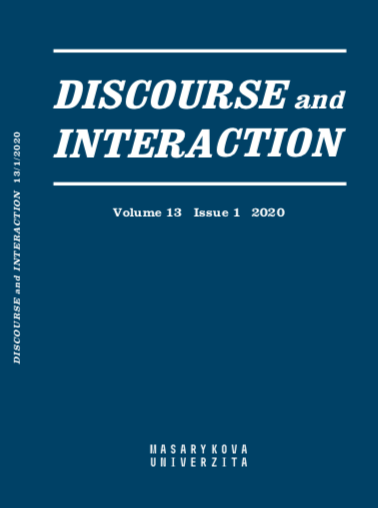Causal relations in English news magazine discourse: Journalists' age perspective
Causal relations in English news magazine discourse: Journalists' age perspective
Author(s): Iryna DanylchenkoSubject(s): Applied Linguistics, Sociolinguistics, Cognitive linguistics
Published by: Masarykova univerzita nakladatelství
Keywords: causal relations; news magazine discourse; journalists’ age; reason clauses; adverbials of reason; concessive clauses; force dynamics; energy transfer model; energy loss model
Summary/Abstract: This paper reveals how journalists’ age influences the linguistic representation of causal relations in English news magazine articles. Treating cause in a broad sense covering adverbials and clauses of reason, concession, purpose and result, the study finds that causal relations are scarce in the texts of young reporters. Unlike them, middle-aged authors’ articles demonstrate a 17-per-cent-higher frequency of adverbials and clauses of reason, and older journalists’ texts show a 12-per-cent rise in concessive clauses with the temporal concessive, comparative concessive, alternative concessive, conditional concessive and generalizing concessive relations. To account for these findings, I apply Talmy’s (1985) force dynamics theory viewing cause as an interaction of entities concerning force and energy where one causes another. Given this theory, middle-aged journalists verbalise causal relations grounded in what I call energy transfer model with one moving entity causing another to move, and energy loss model where inactivity of one entity is due to blocking of the other entity. In older authors’ articles, causal relations are represented by concessive clauses introduced by a range of conjunctions specifying concessive meaning: temporal concessive, comparative concessive, alternative concessive, conditional concessive and generalizing concessive.
Journal: Discourse and Interaction
- Issue Year: 13/2020
- Issue No: 1
- Page Range: 25-41
- Page Count: 17
- Language: English

